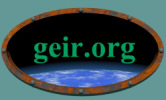
 |
|||||||
|
|
|
|
|
|
|
All of the thousands of documented sentient races in Known Space have communicated via one or many (sometimes thousands) of languages. This section contains an overview of major languages common in Known Space, focusing on those widely used by major or multiple species in interstellar communication.
The Human Race and its derivatives, spread across over ten thousand worlds utilizes thousands of languages and countless dialects. The vast majority of Humans utilizes languages derivative from Standard Imperial Anglic, a third millennium standardization of ancient American English that was adopted for use by the Empire of Humanity.
Most standard implementations of Anglic either utilize the ancient Imperial Anglic Alphabet or the Orion Anglic Alphabet for written or data communications.
The challenge of providing cross-species communication led the founding races of theGrand Federation of Races to develop created languages suitable for widespread communications. Though these languages were designed to be free of specific species influence, most were developed by committees of powerful founding races and dominant races influenced the selection of symbology and phonetics for each of these forms of communication. This section outlines the standard Grand Federation Languages following the Grand Federation Language schema, with Anglic classifications noted in parentheses.
Federation Symbolic is the oldest Grand Federation language. This binary-based language was originally intended to be the only form of communication between disparate Grand Federation species. Symbolic evolved out of an older and syntactical quiet different form of communication that was adopted prior to 86,000BC by the Founders and Dantumas an exchange tongue. This original language, Old Symbolic, is no longer in use.
Federation Symbolic was developed and codified by the Founders, Dantum and Jembo in 61,080BC and was the official language of the founding of the Grand Federation of Races. Federation Symbolic remains the standard form of data communications and interlingual translations in the Grand Federation and the Symbolic written forms are utilized by nearly a third of current Grand Federation races, including the Dantum, Hubas and Zhretra. The Fontan and Yerman (in external communications) use a high-pitched trilled vocal version of Symbolic for communications; this variant is listed as Federation K in the Imperial classification system.
Even before the official founding of the Grand Federation, dissatisfaction with the nonverbal nature of Symbolic led to the commissioning of committees to develop ultimately seven additional forms of communication suitable for most Member Races. All of these additional languages have their unique written forms and spoken forms, but all utilize Symbolic as the underlying format for data storage and transmission.
High Sonic is a combination of 24 tonal and pitch-modified trills, stops and fricatives pitched between 4,000 and 30,000 hertz. The Eenitiki and Szri'ta'zhan were the primary developers of this language. A more tonal, less harsh variant of this language is often categorized as Federation F.
Low Sonic is a formalized language based on musical qualities of the pitch, tone, and duration of phonemes ringing between 15 and 200 hertz. The Un'aa'graum were the primary developers of this lyrical language. Its curved written form is based on Looped Script Symbolic numerals to express 496 unique tonal phonemes composed of 31 base phonemes modified by 4 tones and 4 lengths.
Middle Sonic is the Grand Federation Language most familiar to Humans. Middle Sonic has 39 simple (non-tonal, variable pitch, duration insensitive) phonemes usually expressed between at 80 and 400 hertz. The language was originally developed by a committee headed by the Teechiri, Vandar and Yumbaral and has achieved widespread use in the coreward regions where it was spoken by the Khabadera, Federation Humans, Gulkan and Kraz. Federation and Imperial Era B'dr'rak spoke a lower pitched (30 to 50 hertz) non-fricative version of Language C, classified by Imperial scholars and Federation J. The now extinct Urdunnu developed a tonal variant of Middle Sonic still in use by some Tertiary Races and poets of various races; the Imperial classification system lists this variant as Federation I. Middle Sonic's alphabet remains in widespread use.
A language specialized for long-distance audible communications in dense environments such as jovian atmospheres and liquid oceans. Far Sonic is utilized by the Bardican and Salvaatiki.
A purely visual language utilizing standardized images and patterns. The Heedan created this language and remain its major utilizers.
A language based on textures, pressures and bumps. The Tadla originated Tactile, which normally uses Symbolic Literal Script in its written form, with modifiers to express pressure.
A language based on airborne or surface-applied molecular scents.
Many major races reverted to native languages during the Chaotic Era, notably the B'dr'rak, Yerman and Cargomen. In most instances, these languages replaced the long adopted Grand Federation languages in internal and often official usage. In most instances, these native languages, though spoken with pride, are rarely used for trans-species communication. Only those in use by multiple species of a significant area are listed in this section.
The highly polysynthetic, incorporating, and agglutinating language of the Khruzi has spread with the practice of the Fzuki Way and is spoken by both Khruzi and Human residents of the Mendam Codominium in conjunction with the Spinish dialect of Anglic.
The official language of the Rootjalik Empire is enforced across its occupied Human and Serlian worlds.
All pages and images ©1999 - 2005
by Geir Lanesskog, All Right Reserved
Usage Policy
![]()